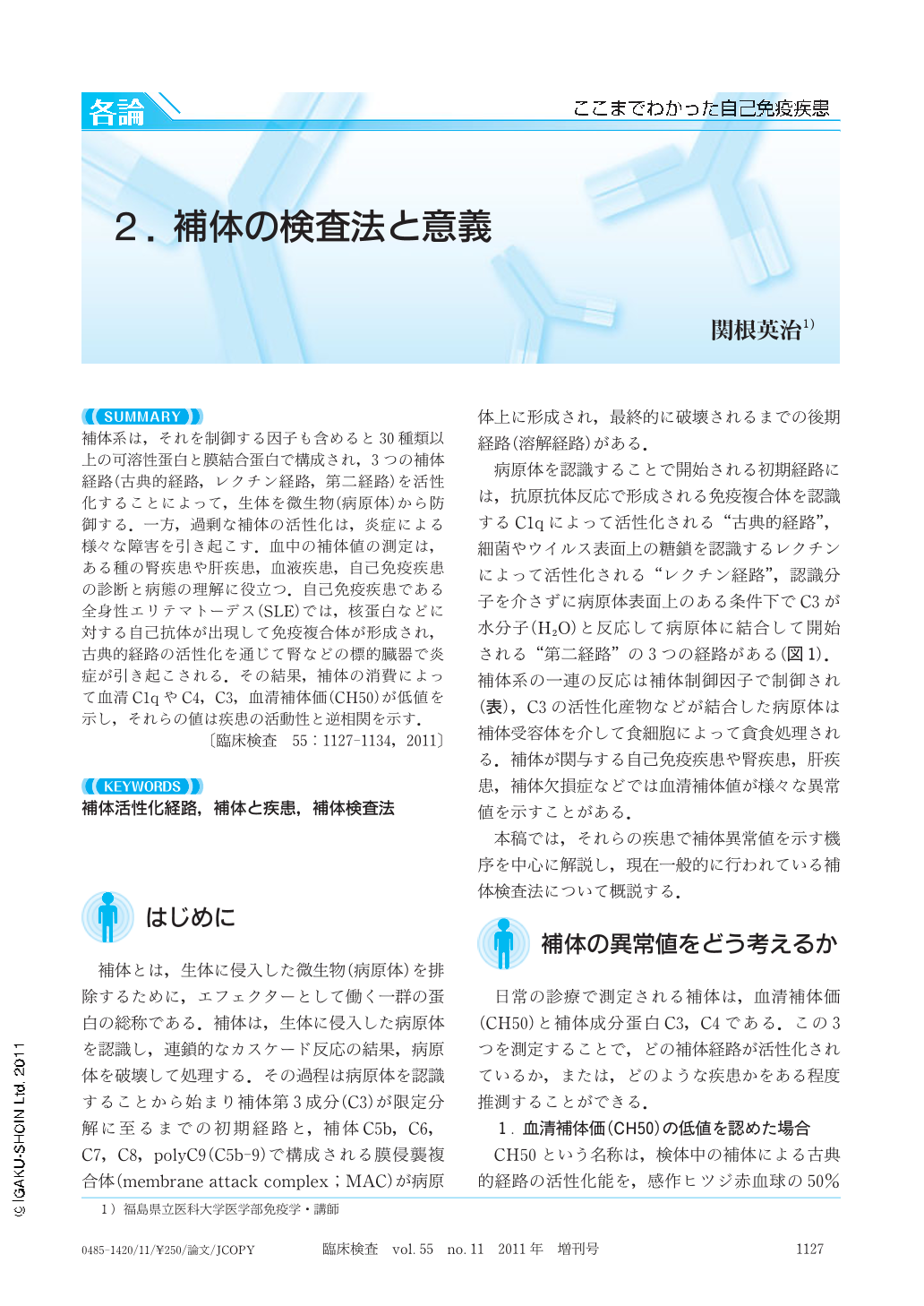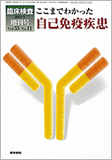Japanese
English
- 有料閲覧
- Abstract 文献概要
- 1ページ目 Look Inside
- 参考文献 Reference
補体系は,それを制御する因子も含めると30種類以上の可溶性蛋白と膜結合蛋白で構成され,3つの補体経路(古典的経路,レクチン経路,第二経路)を活性化することによって,生体を微生物(病原体)から防御する.一方,過剰な補体の活性化は,炎症による様々な障害を引き起こす.血中の補体値の測定は,ある種の腎疾患や肝疾患,血液疾患,自己免疫疾患の診断と病態の理解に役立つ.自己免疫疾患である全身性エリテマトーデス(SLE)では,核蛋白などに対する自己抗体が出現して免疫複合体が形成され,古典的経路の活性化を通じて腎などの標的臓器で炎症が引き起こされる.その結果,補体の消費によって血清C1qやC4,C3,血清補体価(CH50)が低値を示し,それらの値は疾患の活動性と逆相関を示す.
The complement system consists of more than 30 soluble and cell-bound proteins including negative regulators, and protects the host against bacterial pathogens by activation of 3 types of complement pathways : classical, lectin and alternative pathways. On the other hand, over-activation of the complement system causes various inflammatory disorders in the host. Measurement of serum complement component levels is useful for diagnosis and understanding of disease activity in certain renal, hepatic, hematologic and autoimmune diseases. Systemic lupus erythematosus (SLE) is a prototypic autoimmune disease characterized by production of autoantibodies, formation of immune complexes as well as inflammation in targeting organs, including the kidneys, via activation of the classical pathway. As a result, serum levels of C1q, C4, C3 and CH50 in SLE patients are often decreased due to their consumption and inversely correlate with disease activity.

Copyright © 2011, Igaku-Shoin Ltd. All rights reserved.


